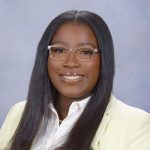 Congratulations to Makayla Dawkins, Bachelor of Science, Individualized major in Gender, Sexuality, and Reproduction; minor in Human Development and Family Sciences, winner of the Provost’s Award for Excellence in Community Engaged Scholarship – Undergraduate Student Award.
Congratulations to Makayla Dawkins, Bachelor of Science, Individualized major in Gender, Sexuality, and Reproduction; minor in Human Development and Family Sciences, winner of the Provost’s Award for Excellence in Community Engaged Scholarship – Undergraduate Student Award.
Author: Janice Berriault
Rachael Farina interviewed by Cosmopolitan
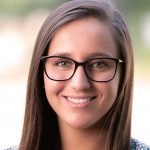 Graduate student Rachael Farina was recently interviewed for Cosmopolitan. Read the article here.
Graduate student Rachael Farina was recently interviewed for Cosmopolitan. Read the article here.
Sara Harkness talks about mothers across cultures on NPR AirTalk
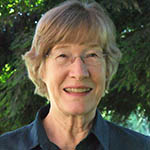 Professor Sara Harkness was interviewed on AirTalk, a public affairs show on NPR in Los Angeles, about mothers across cultures.
Professor Sara Harkness was interviewed on AirTalk, a public affairs show on NPR in Los Angeles, about mothers across cultures.
Marlene Schwartz quoted in Newsmax article
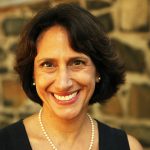 Newsmax quoted Professor Marlene Schwartz in their article “USDA Considers Banning Flavored Milk in Elementary, Middle Schools”. Read the article here.
Newsmax quoted Professor Marlene Schwartz in their article “USDA Considers Banning Flavored Milk in Elementary, Middle Schools”. Read the article here.
Rebecca Puhl quoted in Muscatine Journal
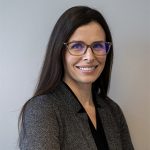 Muscatine Journal quoted Professor Rebecca Puhl in their article “Louisa County approves sliding fee scale for 2024”. Read the article here.
Muscatine Journal quoted Professor Rebecca Puhl in their article “Louisa County approves sliding fee scale for 2024”. Read the article here.
HDFS Child Labs visit the Benton Museum of Art
 Children, professional staff and college students from the Child Labs, visited the Benton Museum of Art to participate in their Learn to Look program for introducing young children to the arts. The Child Labs and the Benton plan to continue this relationship.
Children, professional staff and college students from the Child Labs, visited the Benton Museum of Art to participate in their Learn to Look program for introducing young children to the arts. The Child Labs and the Benton plan to continue this relationship.
Lexi Tomkunas awarded Wood/Raith Living Trust summer Fellowship
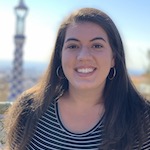 Congratulations to graduate student Lexi Tomkunas, who was awarded a 2023 Wood/Raith Gender Identity Living Trust summer fellowship.
Congratulations to graduate student Lexi Tomkunas, who was awarded a 2023 Wood/Raith Gender Identity Living Trust summer fellowship.
Kim Gans receives grant from US Dept of Health and Human Services
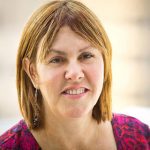 Professor Kim Gans received a five-year, $3 million grant from the US Department of Health and Human Services, Administration For Community Living, Administration on Aging Innovations in Nutrition Programs and Services entitled “Evaluating the impact and sustainability of enhanced home-delivered meal program services on older adults’ health and well-being”. Kim is Co-PI of this grant along with Caitlin Caspi from Allied Health and Meg Grady, Director of Meals on Wheels Rhode Island. The goal of the project is to implement and test the effectiveness of an enhanced Home-Delivered Meals service delivery approach that includes community health worker interactions and supplemental healthy grocery bags to address diet quality, food and nutrition security, loneliness, and health-related quality of life for older adults.
Professor Kim Gans received a five-year, $3 million grant from the US Department of Health and Human Services, Administration For Community Living, Administration on Aging Innovations in Nutrition Programs and Services entitled “Evaluating the impact and sustainability of enhanced home-delivered meal program services on older adults’ health and well-being”. Kim is Co-PI of this grant along with Caitlin Caspi from Allied Health and Meg Grady, Director of Meals on Wheels Rhode Island. The goal of the project is to implement and test the effectiveness of an enhanced Home-Delivered Meals service delivery approach that includes community health worker interactions and supplemental healthy grocery bags to address diet quality, food and nutrition security, loneliness, and health-related quality of life for older adults.
Two studies by Rebecca Puhl cited in KVIA-TV article
 KVIA-TV published a story entitled “Breaking down racial disparities in diabetes prevalence” cited two studies by Professor Rebecca Puhl. Read the story here.
KVIA-TV published a story entitled “Breaking down racial disparities in diabetes prevalence” cited two studies by Professor Rebecca Puhl. Read the story here.
Also, the Society for Human Resource Management published a story entitled “Laws, Policies Can Counter Weight Discrimination at Work” quoting Rebecca.
Kaleigh Ligus interviewed as recent graduate in UConn Today
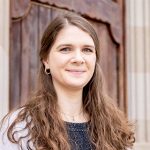 Graduate student Kaleigh Ligus featured as one of the UConn students graduating this Spring. Read the article in UConn Today.
Graduate student Kaleigh Ligus featured as one of the UConn students graduating this Spring. Read the article in UConn Today.